Weak leadership, preferential treatment: how the ABC has ‘lost its way’ as fallout from Stan Grant departure lingers
The Stan Grant imbroglio points to wider problems at the public broadcaster, with four clear points of frustration emerging among staff across all levels as well as former senior executives.
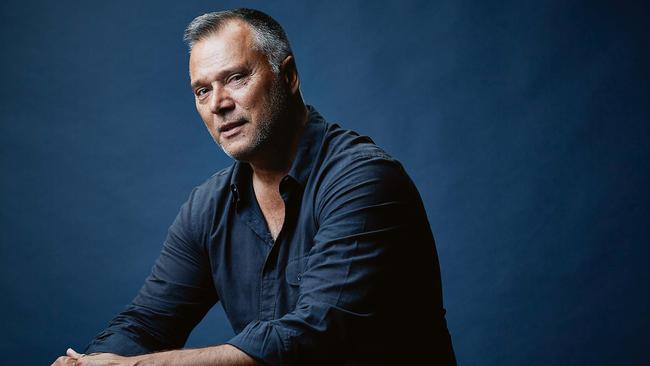
“Our job is to reflect the community back to itself,” ABC managing director David Anderson told a Senate hearing this week.
It’s a noble ideal.
But in 2023, when the ABC’s audience looks at its supposed mirror image on the television, what does it see?
When the public broadcaster’s listeners turn on their radios, what do they hear?
If this year’s television and radio ratings are any guide, a vast chunk of these audiences no longer recognise the taxpayer-funded media organisation as “their” ABC.
There has been no finer example of the public broadcaster’s disconnect with its audience than its coverage of the coronation, which featured Stan Grant and two other commentators expressing their deep disdain for the monarchy.
One veteran media figure put it this way: “How could anyone at the ABC think it was a good idea to allow activists to hijack an event that was of massive interest to so many of its viewers who are likely to be staunch supporters of the monarchy? These viewers weren’t inner-city luvvies. Most of them would have been conservative voters who love the monarchy and are avid consumers of the ABC.”
Several ABC radio programs, particularly in the bigger markets of Sydney and Melbourne, have lost close to half their audiences in 18 months. ABC TV numbers also have softened.
People have moved on because the ABC is having an identity crisis, critics say. The editorial line between reporting and commentary has become dangerously blurred, with increasing confusion over where facts end and opinion begins.
Inquirer has spoken to staff across all levels of the organisation as well as former senior executives who believe the ABC has “lost its way”, with four clear points of frustration emerging: a general disregard among some journalists and editors for straight news coverage; weak leadership; an ineffective social media policy; and preferential treatment given to some reporters over others.
“The job of ABC journalists is not to provide commentary – it’s to provide facts and present news in an impartial manner. The ongoing failure to do that is the main reason why they are in the shit,” one former senior ABC executive, who asked not to be named, told Inquirer.
“There’s also an obsession with social media that is really unhealthy and it does nothing to serve the audience. Many journalists seem to have a really strong social media presence, and a lot of them think they’re rock stars.
“But they seem oblivious to the fact that large cohorts of the ABC’s ageing audience are not that engaged with social media – these viewers and listeners want to be told what’s happening in the world, not what’s happening on Twitter.
“Worse, management doesn’t seem to want to do anything meaningful about the social media issue.”
Another former news executive, with a deep understanding of the ABC’s newsroom processes, said: “I don’t want to see journalists express their personal views on social media because it comes back to perception.
“If they are freely expressing political views on social media, it diminishes the reputation of the media organisation’s news-gathering capabilities.”
Last year, Radio National breakfast host Patricia Karvelas was accused of political bias after she posted a selfie on her social media accounts with Linda Burney, now Indigenous Australians Minister, on the night of the federal election.
In the post Karvelas wrote: “This woman is a legend and looks like she will be the next Indigenous Affairs minister #UluruStatement”.
Karvelas was cautioned by ABC management about her tweet.
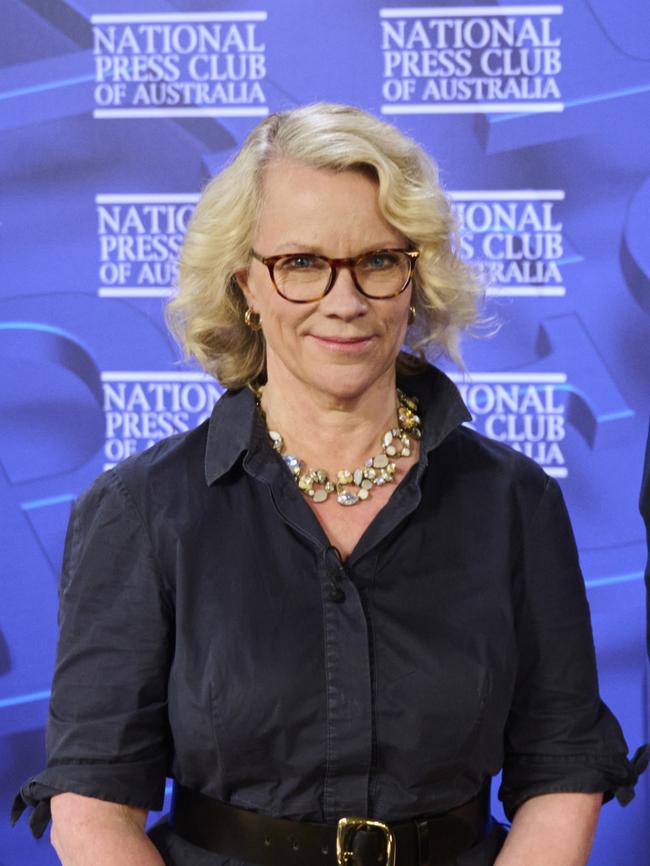
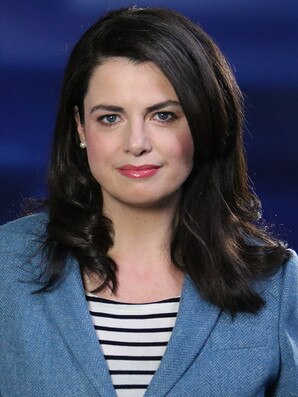
Chief political correspondent Laura Tingle, who recently was appointed to the ABC board as its staff-elected director, came under fire in 2020 for referring to prime minister Scott Morrison as smug and complained about “government ideological bastardry”.
Her tweet was in relation to funding and job cuts at the ABC.
Investigative journalist Louise Milligan misused social media in 2021 after she falsely accused former Liberal MP Andrew Laming of “upskirting” a woman.
Laming took legal action and the ABC paid Milligan’s legal bills including $79,000 in damages to Laming. In total, the matter cost taxpayers more than $200,000.
Last Monday, former Media Watch host Stuart Littlemore and executive producer David Salter wrote a scorching column for The Age and The Sydney Morning Herald in which they also took aim at ABC management for failing to address the increasingly indistinct line between journalists’ reporting and commentary.
“The ABC has catastrophically undermined its authority and independence by permitting journalists to post personal commentary on the corporation’s digital outlets, and to parade their egos on social media.
“Thus, we get defamatory stupidities on Twitter that cause huge reputational (and financial) damage to the ABC. Thus, we get the Stan Grant debacle.
“By failing to draw clear contractual guidelines for ABC staff, whether on-air or not, the corporation has abandoned a longstanding policy that ensured impartiality …
“Clearly, a significant segment of the traditional ABC audience is unhappy with much of its current output. Metro radio audiences have slipped, while support for the free-to-air TV network is eroded by the multiplicity of alternative digital sources.
“The solution is not some lofty executive (usually the managing director) deeming that the corporation needs to restructure and pursue a younger audience. That defies the nation’s demographics.
“It’s the older segment that is growing fastest, and it is a segment that is far from easy to please. Attempts to make the ABC flashier – and trashier – only alienate its loyal and mature audience.”
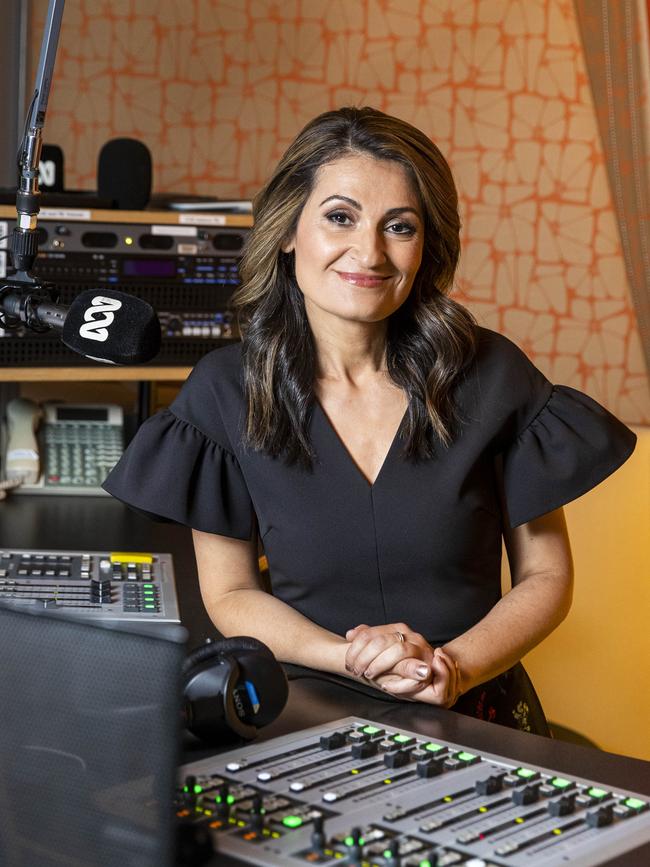
ABC Radio National presenter Tom Switzer said the public broadcaster needed to represent the “broad cross-section of Australian taxpayers”.
“Unfortunately, the increasing breakdown between news and opinion means that a certain ABC mindset or groupthink – from net zero to border protection to the voice – all too often shapes coverage.”
Switzer said while “the ABC is not calculatedly partisan”, it had an “entrenched mindset” as the “division between news/reporting/presenter and commentary breaks down”.
Russell Balding, who was managing director of the ABC from 2002 to 2006, said while the digital era had presented new challenges for the public broadcaster, the “underlying core objectives” must be preserved.
“When I was there, the need to adhere to editorial policies and the ABC’s charter was very much at the forefront of management and the board,” he told Inquirer.
“And I was always conscious of the need to maintain relevance. Once you lose relevance, you’ve lost the game.”
Donald McDonald, who was ABC chairman from 1996 to 2006, said the ABC should be “serving the public and serving their audience – that’s the fundamental part of their job”.
Another senior figure at the ABC, who also requested anonymity, said all media companies were having difficulty in adjusting to the rolling challenges of the digital age.
“I think it’s a challenge for everyone, to be honest. But the ABC has to strictly adhere to its charter, and accurate and impartial reporting are central to that,” the executive said.
“Is there still a role for public broadcasting in this day and age? Absolutely, no doubt about it. But is the ABC performing the role and duties of a public broadcaster as well as it needs to? I’d say, unequivocally, no.”
The ABC has been heavily criticised across the past three weeks for scheduling a panel discussion – featuring three guests opposed to the monarchy (including Grant) and only one in favour – on the evening of the coronation of King Charles III on May 6.
The coverage prompted more than 1800 viewer complaints to the ABC and contributed to the racial abuse of Grant – who discussed the damaging legacy of the monarchy on Indigenous Australians – on social media.
Grant is taking a two-month break from his Q+A hosting duties.
The ABC ombudsman’s report into the coverage concluded that while the program was “jarring to some viewers”, it was not in breach of the public broadcaster’s editorial policy.
“While the ABC should on all occasions be fair, accurate and open minded, the impartiality standards do not require that every perspective receives equal time, nor that every facet of every argument is presented,” the report, released on Thursday, says.
The ombudsman investigates only complaints that relate to the breaching of editorial standards, and the viewing public’s central criticism of the program was not the content – indeed, this newspaper editorialised that the subject matter of colonial impact on Indigenous Australians is a worthy topic for debate – but the timing, a decision that rested with senior editorial executives.
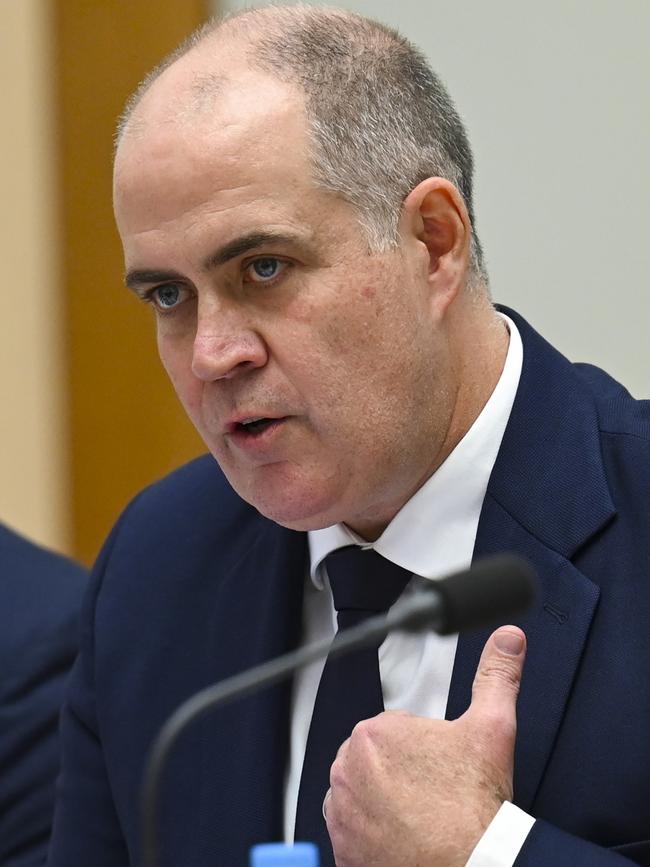
As one senior ABC insider told The Australian this week: “It was one of the worst programming decisions by the ABC in recent history.”
During their appearance before a Senate estimates hearing on Wednesday, Anderson and ABC director of news Justin Stevens were unrepentant.
“I think it (the coronation coverage) was justified, relevant and appropriate,” Anderson said. “We will need to keep holding difficult and uncomfortable conversations on behalf of the Australian people; that’s what we do.”
Anderson’s comments stunned several senior figures within the ABC.
“The better course of action would have been to put up his hand and just admit his mistake,” one source told The Australian.
“The coronation was a once-in-a-lifetime experience for many people. It’s very easy for management to say that we provided a diversity of views on that occasion, but by any measure I think we failed to read the room.
“The reality is there are certain occasions that you’re there to provide what the general public is looking for, and what they are looking for isn’t always combat.
“The coronation wasn’t the time to have a debate about the history of colonisation.
“Public broadcasting doesn’t need activism. Sometimes it’s as simple as covering an event or a moment.”
The source said it was also a commonly held view within the ABC that senior members of the editorial management team were captured by a handful of high-profile journalists based in Sydney and Melbourne, and that those senior reporters “effectively don’t answer to anyone”.
It’s a complaint regularly heard from lower paid journalists and producers, particularly those who don’t work in the ABC’s larger offices in Sydney and Melbourne.
One ABC regional journalist – who asked not to be named for fear of losing their job – said they had “witnessed the exodus of talented, critical thinking, regionally relevant journalists and staff who had tried their best to hold back the flood of woke ideology, activist agendas and a burgeoning bureaucracy”.
“ABC regional today largely represents the voice of hand wringers and seat warmers, checking diversity boxes but never venturing out of the office to be met with the honest, frustrated, voiceless people in their country communities,” the journalist said. “Internally, there is no road out of the quagmire.
“Management structures have established themselves to ensure their survival, and those attempting to provide diverse perspectives or impartial news and views that truly represent rural communities are systematically and insidiously gotten rid of or squeezed to the point that they give in and get out.”
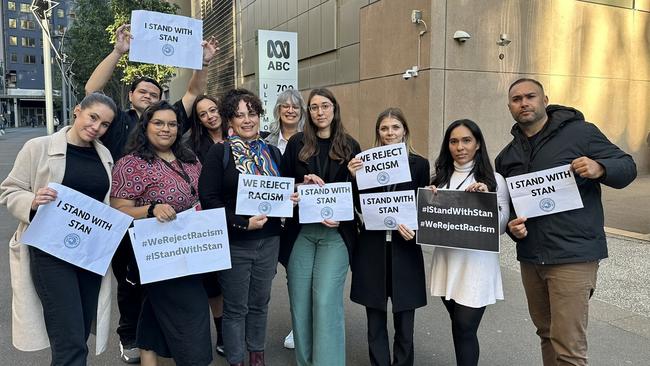
Another senior editorial manager also spoke of the east coast centralisation of the organisation, and the consequences that had for staff in the regions and in other capital cities.
“Outside of the ABC’s offices in Canberra, Melbourne and Sydney, there’s a huge cynicism about the political leanings that some high-profile journalists publicly display,” the manager said. “People talk about groupthink in the ABC, but once you get away from those three centres you don’t get that groupthink. There’s just more eye-rolling and exasperation at what goes on in those offices, and that goes for just about every big decision that comes out of those strongholds.
“I can tell you, there was not much love for the coronation coverage in the regions. The panel program was almost like a spoiler for the coronation itself.”
Geraldine Doogue, who currently hosts Saturday Extra on ABC Radio National, told The Australian she was a “big believer” in the ABC but said the organisation needed to work out “who it wants to appeal to”.
“There are legitimate concerns about whether we adequately serve the outer suburbs of Australia and first-generation migrants,” she said.
“But the ABC shouldn’t try to be all things to all people. The risk is that you can lose one generation while not capturing the next. We probably are trying to do too much now.
“The great temptation is to think too broadly and to then find yourself unsure of what your purpose is. We shouldn’t apologise for who we are. I think that’s a fatal error.”
Additional reporting by Sophie Elsworth



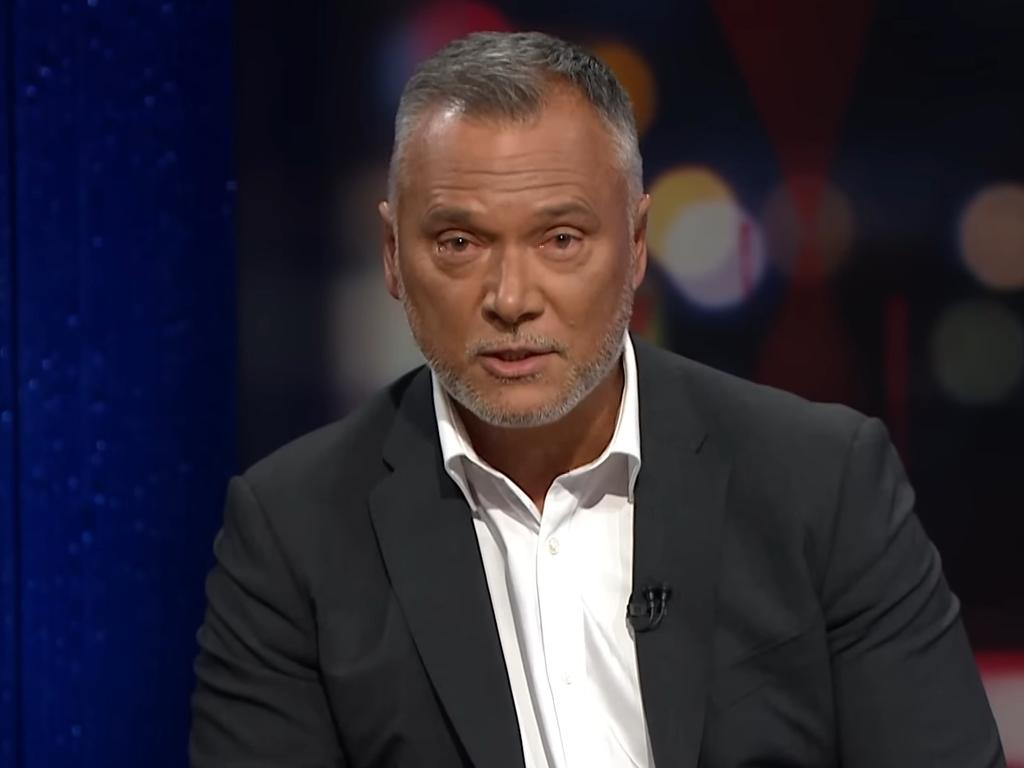


To join the conversation, please log in. Don't have an account? Register
Join the conversation, you are commenting as Logout